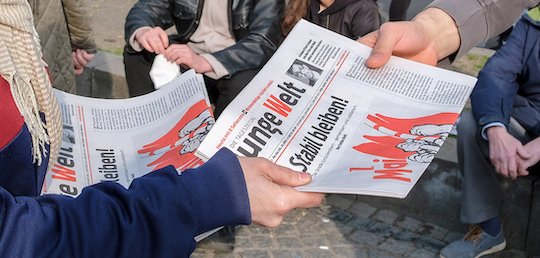Killing Machines from Germany
In the southern German city of Friedrichshafen the company MTU builds engine parts for US export. Once assembled in the USA, engines are exported to Israel and used for war crimes in Gaza
Benjamin KirchhoffArtikel-Länge: 21270 Zeichen
Uneingeschränkter Zugriff auf alle Inhalte: Erleben Sie die Tageszeitung junge Welt in gedruckter oder digitaler Form – oder beides kombiniert.
Nachrichtenauswahl und -aufbereitung erfordern finanzielle Unterstützung. Die junge Welt finanziert sich größtenteils durch Abonnements. Daher bitten wir alle regelmäßigen Leser unserer Artikel um ein Abonnement. Für Neueinsteiger empfehlen wir unser Online-Aktionsabo: Einen Monat lang die junge Welt als Onlineausgabe bereits am Vorabend auf jungewelt.de und als App für nur sechs Euro lesen. Das Abo endet automatisch, keine Kündigung erforderlich.
Dein Abo zählt!
Weitere Optionen unter: www.jungewelt.de/abo.
Abo abschließen
Gedruckt
Sechs mal die Woche: Hintergrund und Analysen, Kultur, Wissenschaft und Politik. Und Samstag acht Seiten extra.
Verschenken
Anderen eine Freude machen: Verschenken Sie jetzt ein Abonnement der Printausgabe.



